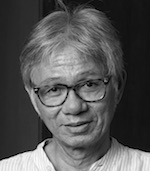 The Supreme Court’s affirmation of the legality of President Duterte’s imposition of martial law in Mindanao can only serve to feed his predisposition to authoritarianism, which he has betrayed all too often by self-comparison with Ferdinand Marcos, dictator for 14 years.
The Supreme Court’s affirmation of the legality of President Duterte’s imposition of martial law in Mindanao can only serve to feed his predisposition to authoritarianism, which he has betrayed all too often by self-comparison with Ferdinand Marcos, dictator for 14 years.
Duterte won a strong vote: 11 justices decided for him, and 3 would have gone along, leaving but one full dissenter (Marvic Leonen), if only martial law had been confined to Marawi City, where for more than a month now troops have been battling Moro brigands and renegade rebels in league, according to the government, with ISIS (Islamic State) terrorists. Duterte had decided to come down on all of Mindanao in anticipation of the conflict spilling over.
According to the military, even before the Marawi flare-up, some of the enemy already had crossed the sea from Lanao del Sur, the province of which Marawi is the capital, to Bohol province, in the Visayas. In Metro Manila itself, alerts to terrorist threats are sounded now and then.
Since taking office one year ago, Duterte in fact has been raising the prospect of countrywide martial law in answer to the drug menace. But, while he has continued to use normal powers in dealing with it, his ways have been found too brutal still to be normal. His war on drugs has resulted in thousands of deaths and provoked widespread suspicions of summary executions. The number of kills often given goes beyond 7,000, but the police ascribe more than half of that number to vigilante assassinations not sanctioned by them, though, again, not necessarily uninspired by their war.
Somehow he has always found a connection between drug and terrorism, not to mention other common crimes, and he finds the connection pronounced in Marawi, where, he says, drugs are not only sold to finance terrorism but also taken by the terrorists themselves to stay up and alert in battle.
Duterte’s descent on the road to martial law was actively foreshadowed when he took up special powers in September; he put Mindanao under a “state of emergency” when two bombs exploded, killing 14 people, at a night market in his native Davao City, where he had ruled for more than two decades as an autocratic mayor. The emergency allowed him to call in the army to augment the police. Seven suspects were quickly arrested, and an inquiry determined that the attacks had been mounted by terrorists and plotted in fact by the same Maute brothers now leading the enemy in Marawi.
If Marawi made Duterte’s case for martial law in Mindanao, the Supreme Court provided the constitutional basis for it. The court has been the uncertain factor in Duterte’s equation until now. Congress has not been a problem at all; he commands such an overwhelming and sycophantic majority in both the Senate and the Lower House it came as no surprise that neither bothered at all to exercise its oversight duty over Duterte’s martial law.

The Supreme Court is not itself free of politics. Indeed, more than a whiff of it issues from some of its recent rulings, of which 3 beneficiaries happen to be Duterte allies:
- The Marcos family, who helped fund Duterte’s campaign for president and got him to anoint Ferdinand Jr as his successor, was finally granted its wish for its infamous patriarch, dead for 28 years, to be given a hero’s burial;
- Juan Ponce Enrile, Ferdinand Marcos’ chief martial-law enforcer, who managed to be elected to the Senate and is now on trial for plunder, was granted bail, a right normally denied those accused of that crime; and
- Former president Gloria Macapagal-Arroyo got the best deal of all: she was acquitted of plunder and set free, and now sits in the House of Representatives.
All these cases were decided in the Duterte presidency and by a Supreme Court dominated by Arroyo appointees.
But doubtless it’s its decision upholding Duterte’s martial law that is most chilling for its possible consequences in both the immediate future and the longer term – consequences likely to be particularly harsh in the hands of a Duterte.
For one thing, the decision sets no limits on what Duterte can do with martial law. For another, it becomes easier for him to bring around the military, which he has been courting madly for – as it has become clearer now than ever – another round of martial law.
Badly damaged as an institution in Marcos' time, the military has become more constitutionality-conscious and careful about dancing with any strongman again – and only properly so. After all, without the military behind it, there’s no martial law.
One can only hope the military could also see through the politics and pathologies at work here. – Rappler.com